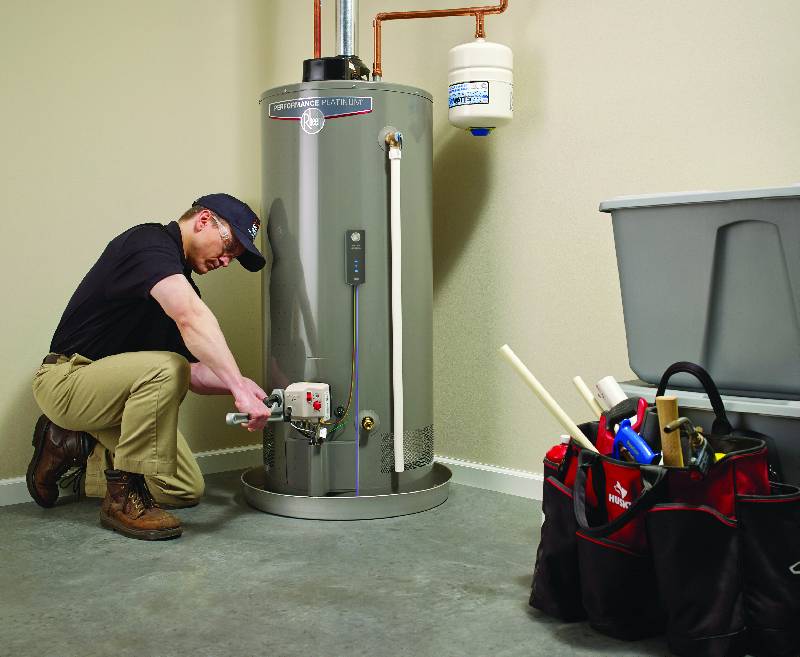Addressing Standard Water Heater Issues
Addressing Standard Water Heater Issues
Blog Article
The article down below about Common Problems with Your Home Water Heater is especially insightful. Give it a try and draw your own personal results.

Visualize starting your day without your routine warm shower. That already sets a poor tone for the rest of your day.
Every home needs a reliable hot water heater, however only a few understand just how to handle one. One easy method to keep your hot water heater in top shape is to check for mistakes on a regular basis and repair them as quickly as they appear.
Remember to shut off your water heater prior to smelling about for faults. These are the water heater faults you are most likely to encounter.
Water too warm or as well cool
Every hot water heater has a thermostat that establishes just how warm the water obtains. If the water entering into your house is as well warm regardless of setting a practical maximum temperature level, your thermostat may be defective.
On the other hand, too cold water might result from a stopped working thermostat, a busted circuit, or incorrect gas circulation. For instance, if you make use of a gas hot water heater with a broken pilot light, you would certainly obtain cold water, even if the thermostat remains in perfect condition. For electric heaters, a blown fuse may be the offender.
Insufficient hot water
Water heaters come in numerous sizes, relying on your warm water demands. If you run out of warm water before everyone has actually had a bath, your water heater is also little for your family size. You should take into consideration setting up a larger water heater container or selecting a tankless water heater, which occupies much less area and is extra long lasting.
Strange sounds
There are at the very least 5 type of noises you can hear from a hot water heater, but the most usual interpretation is that it's time for the hot water heater to retire.
First of all, you must know with the typical seems a hot water heater makes. An electric heater may sound different from a gas-powered one.
Popping or banging noises normally indicate there is a piece of debris in your storage tanks, as well as it's time to cleanse it out. On the other hand, whistling or hissing noises may just be your valves allowing some stress off.
Water leakages
Leakages might come from pipes, water connections, shutoffs, or in the worst-case circumstance, the container itself. Gradually, water will certainly wear away the tank, and discover its way out. If this happens, you need to replace your hot water heater asap.
However, prior to your modification your entire tank, make certain that all pipes are in area and that each shutoff works completely. If you still require help determining a leakage, call your plumber.
Rust-colored water
Rust-colored water implies among your hot water heater elements is corroded. It could be the anode rod, or the storage tank itself. Your plumber will have the ability to determine which it is.
Lukewarm water
Despite exactly how high you set the thermostat, you won't obtain any warm water out of a heating system well past its prime. A hot water heater's efficiency might decrease with time.
You will likewise obtain lukewarm water if your pipelines have a cross connection. This means that when you activate a tap, warm water from the heating system moves in alongside regular, cold water. A cross connection is easy to area. If your warm water taps still follow shutting the water heater shutoffs, you have a cross connection.
Discoloured Water
Rust is a significant source of unclean or discoloured water. Deterioration within the water container or a falling short anode pole might cause this discolouration. The anode pole protects the tank from rusting on the within as well as ought to be inspected annual. Without a rod or a properly operating anode rod, the hot water swiftly corrodes inside the storage tank. Call a professional water heater professional to identify if changing the anode pole will certainly repair the issue; if not, change your hot water heater.
Verdict
Preferably, your water heater can last ten years prior to you require an adjustment. Nonetheless, after the 10-year mark, you might experience any of these mistakes more frequently. At this point, you need to add a new water heater to your budget plan.
How To Troubleshoot 3 Common Water Heater Problems in Twin Cities
The Water Heater Is Leaking
A leaky cold water inlet valve A loose pipe fitting A leaky temperature and pressure relief valve A corroded anode rod A cracked tank Turn Off Your Water Heater:
Shut off your gas water heater by turning the gas valve on the unit to the “OFF” position. Shut off your electric water by switching its power off at your electrical panel. Look for a two-pole breaker labeled “water heater” and turn it to the “OFF” position. Move the ball valve connected to the water heater to be perpendicular to the piping at a 90° angle. Look for the Leak:
Depending on whether the water is coming from the tank's top or bottom, you’ll want to look for the leak in different locations.
If the leak comes from the top of the tank, carefully look for water escaping from the cold water inlet valve or loose pipe fittings. Rusted hot and cold water valves can have loose connections with the tank, with water leaking out of them.
https://mspplumbingheatingair.com/blog/how-to-troubleshoot-3-common-water-heater-problems
As a devoted person who reads on Common Problems with Your Home Water Heater, I figured sharing that editorial was smart. Appreciated our post? Please share it. Help other people find it. We treasure reading our article about Water Heater Repair and Troubleshooting.
Don't settle; choose expert plumbers. Report this page